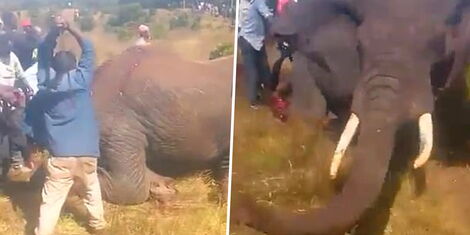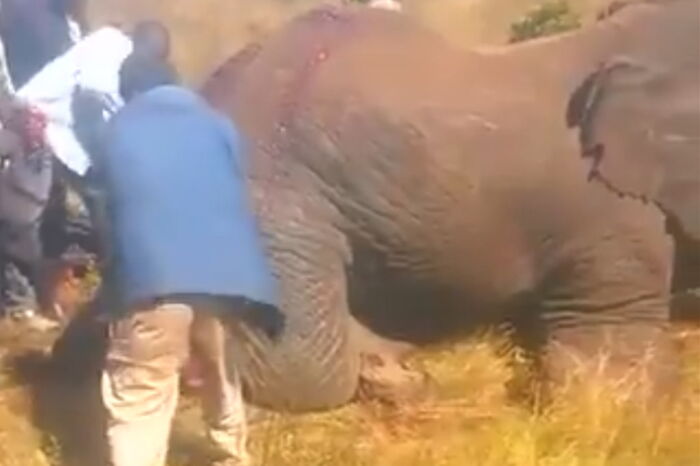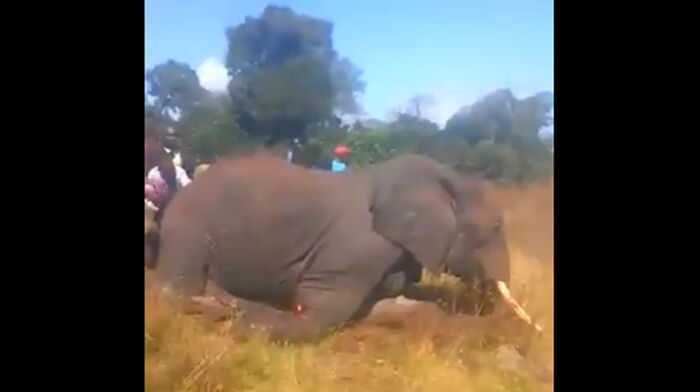
Man in Viral Video of Brutal Elephant Killing Pays Dearly
by Hilda WathithiKenneth Mbaabu Muthaura, the man who shocked Kenyans on social media when a viral video of him brutally hacking an elephant to death with other ten unidentified people has been tracked down and arrested.
The suspect was arraigned in a Nanyuki court on Monday, December 9, where he denied all charges before Nanyuki Resident Magistrate Vincent Masivo, according to a report published by K24.
Muthaura who was tracked down to his home in Meru County was nabbed alongside three others by the Kenya Wildlife Service (KWS) officers.

Michael Wanjau, KWS Assistant Director in charge of the Eastern Conservation area stated that Mutahura, who was released on a Ksh300,000 bond by the court, was positively identified by local elders.
In a statement published on Twitter a few days after the gruesome video went viral in November, KWS said the incident occurred on 21 June, 2018, at the Ncooroiboro-Imenti Forest in Meru.
The video showed the animal surrounded by a number of machete-wielding residents mercilessly hacking at its rear limbs to immobilise it before going all out and butchering it.
KWS had intimated that the incident occurred about 71km from the closest KWS station in Meru and by the time their officers reached the scene, the elephant had been hacked to death and the culprits had escaped.
KWS officers took bone samples from the animal for DNA forensic matching with the tusks which would be used as evidence in court, when the case is mentioned again in court in January 2020.
Cases of human-wildlife conflict in areas near forests and conservancies have persisted over the years with residents often retaliating by attacking the animals after suffering losses in crops and livestock.
Joseph Mbyati, a researcher at the East African Institute, Aga Khan University identifies crop-raiding, attacks on humans, livestock depredation, and property damage as the major human-wildlife conflict types in Kenya.

"Such conflicts have negative impacts on the livelihoods of people, who often respond by killing wildlife involved in the conflict," he argues.
KWS on February 22, had issued a warning of increased incidences of human-wildlife conflict occasioned by a prolonged dry spell.
"Areas that have experienced an increased incidence of human-wildlife conflict in recent weeks are in Narok, Taita Taveta, Laikipia, Kajiado, Meru, Mau, Marsabit, Lamu and the Mt. Kenya region," a statement by the service reads in part.